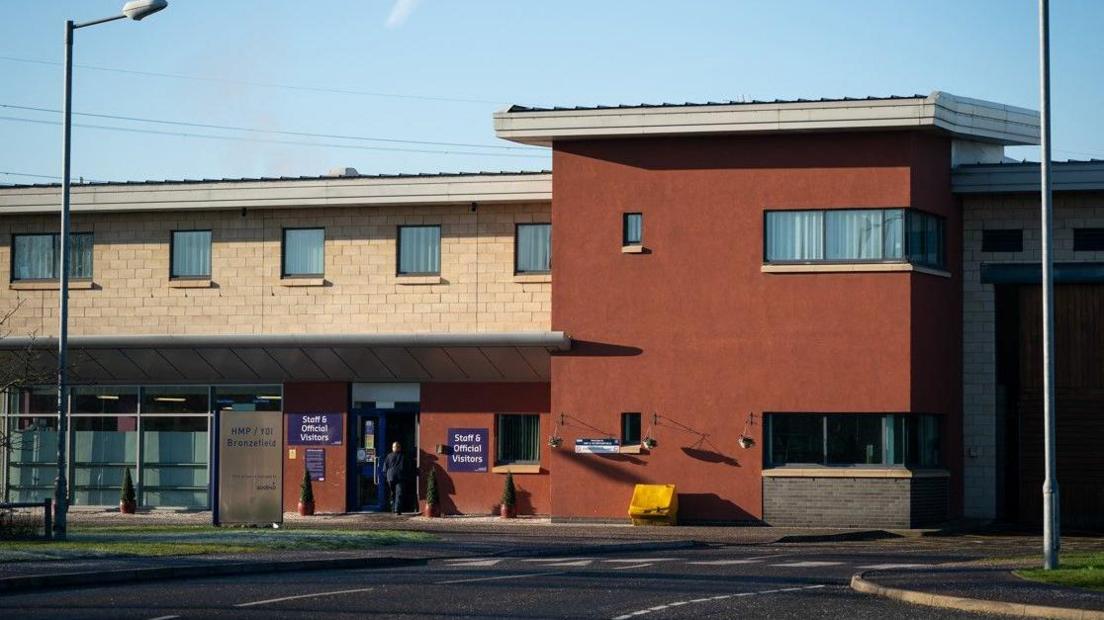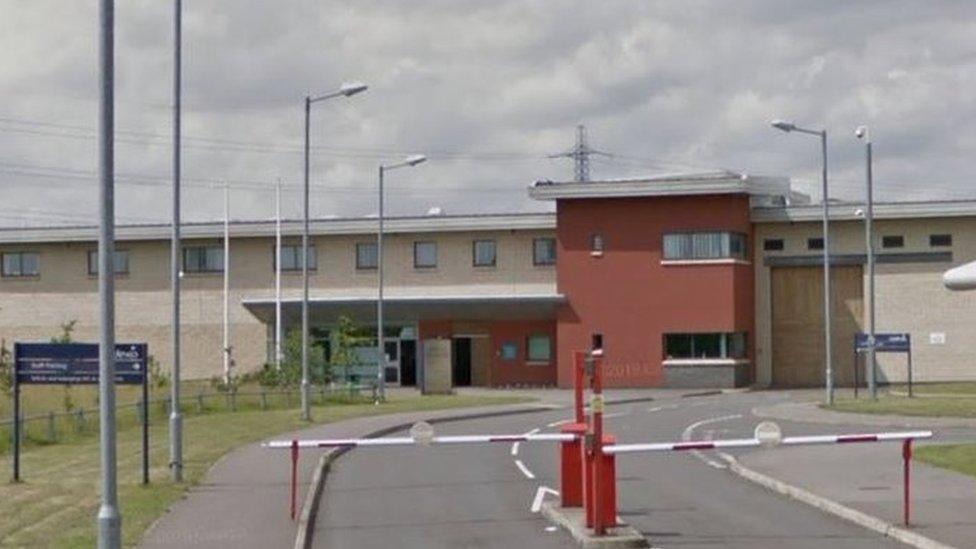Mixed progress at women's prison, inspectors find

HMP Bronzefield was holding 507 women at the time of inspection
- Published
There is a "clear commitment to improvement and innovation" at Europe's largest women's prison despite ongoing challenges, an inspection has found.
An unannounced visit to HMP Bronzefield in Surrey in August found that although the prison was doing "reasonably well in many areas", progress since a 2022 inspection was mixed.
An issue whereby the majority of inmates released did not have safe and long-term accommodation to go to was seen three years ago and during the recent inspection.
The report, published earlier,, external also said some high-risk women had been refused places at approved probation hostels, despite that being part of their risk management plan.
Only one of six key recommendations made in 2022 had been fully achieved, the HM Inspectorate of Prisons report said, although seven of the 10 other recommendations had been.
Charlie Taylor, HM chief inspector of prisons, said: "At this inspection, we identified a further 12 key concerns, six of which we considered priorities, requiring immediate action."
The continued detention of mentally unwell women "due to the scarcity of community services" was among these, though inspectors found the safer custody team mitigated this by providing consistent support.
Another concern was the care and treatment for women withdrawing from substance misuse, which inspectors said was "not good enough and, in some cases, potentially risky".
At-risk prisoners
On the positive side, outcomes for women were assessed as reasonably good according to three criteria: safety, respect, and preparation for release.
Two examples of notable positive practice were identified. One was the AIM (alert, intervene and monitor) application.
Designed for at-risk prisoners, this system connected to several IT systems and generated an analysis of information about individual women.
Changes in the prisoner's routine were flagged to signal potential increases in isolation or self-harm.
The other related to the tools given to women on release.
Those leaving prison were given an email address to maintain contact with the prison team, and a personalised employment pack including their CV and disclosure letter.
Mr Taylor also reflected positively on the prison's leadership under director Charlotte Wilson.
He said Ms Wilson "had quickly begun the process of driving forward important improvements" and staff had spoken "positively about her leadership and ambition".
However, he said morale among officers remained mixed.
Follow BBC Surrey on Facebook, external, on X, external. Send your story ideas to southeasttoday@bbc.co.uk , external or WhatsApp us on 08081 002250.
Related topics
- Published11 May 2022
